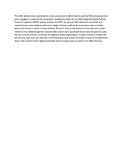| dc.contributor.author | Nzomo, Maria | |
| dc.date.accessioned | 2013-08-07T06:43:28Z | |
| dc.date.available | 2013-08-07T06:43:28Z | |
| dc.date.issued | 2003 | |
| dc.identifier.citation | Nzomo, Maria. "The 2002 General Elections in Kenya; Women’s Performance and Prospects in Parliamentary Politics." Journal of Social and Religious Concern 18.1-2 (2003). | en |
| dc.identifier.uri | http://web.peacelink.it/wajibu/18_issue/p2.html | |
| dc.identifier.uri | http://erepository.uonbi.ac.ke:8080/xmlui/handle/123456789/54990 | |
| dc.description.abstract | The 2002 elections were preceded by a two-year period in which women political NGOs empowerment were engaged in a well funded preparatory programme under the so-called Engendering the Political Process Programme (EPPP) banner. Despite the EPPP, for most of 2002-when the succession and constitutional review debates took center stage in Kenya's political discourse-there was a notable absence of women's voices in those debates. Women's silence had become so loud that even issues related to the traditional gender concerns that women were passionate about over the past ten years did not so much as elicit a comment from gender-based organizations. Instead, it was the media men and women, who took the lead role in commenting on such issues-including the issue of the significant drop in the number of the registered female voters (in proportion to men) for the 2002 elections. | en |
| dc.language.iso | en | en |
| dc.title | The 2002 General Elections in Kenya; Women's Performance and Prospects in Parliamentary Politics | en |
| dc.type | Article | en |
| local.publisher | Institute of Diplomacy and Development Studies | en |


